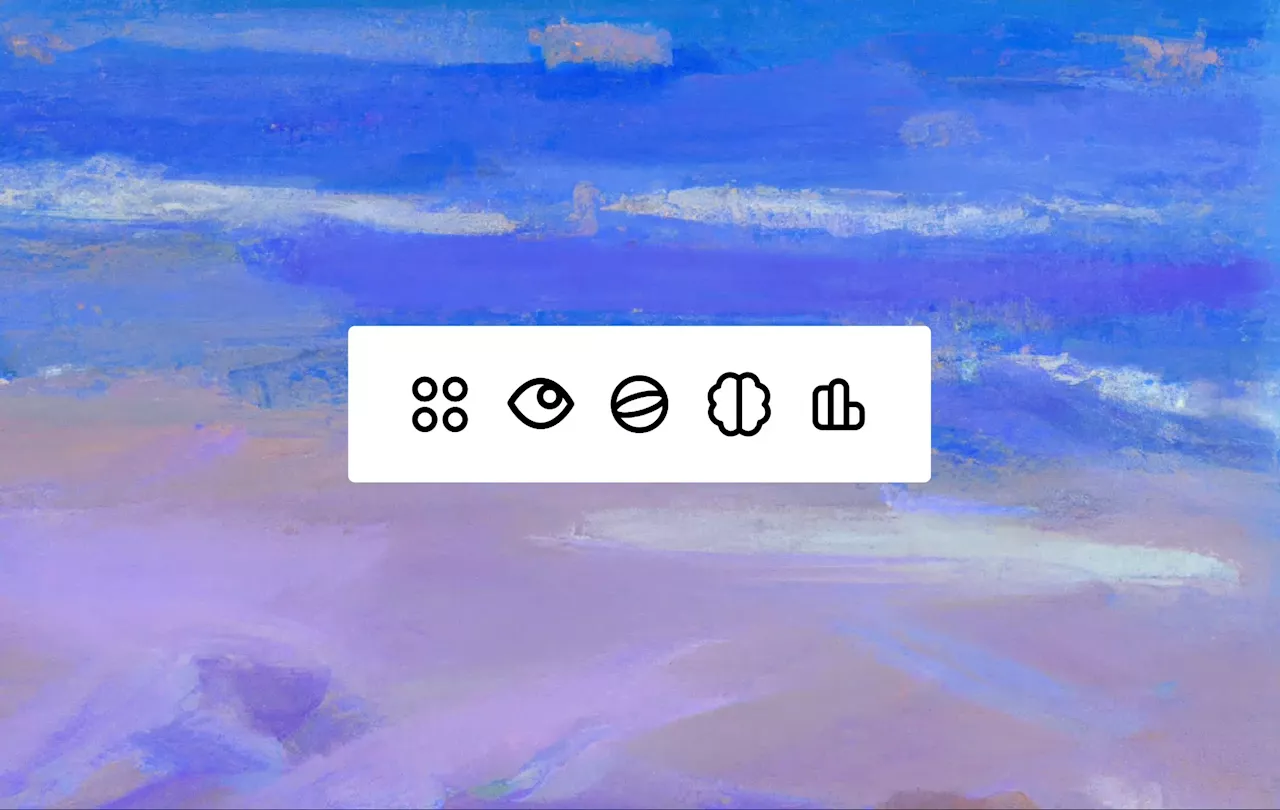DeepSeek's emergence as a formidable competitor in the AI landscape has ignited a race to develop even more powerful reasoning models. As DeepSeek's R1 model gains attention for its impressive performance and affordability, OpenAI is poised to counter with the release of ChatGPT o3-mini, its next-generation reasoning model. This article explores the implications of DeepSeek's breakthrough, analyzes OpenAI's strategic response, and speculates on the future of AI development in this exciting era.
DeepSeek has recently taken the AI world by storm, even if you're not using AI chatbots like ChatGPT. The Chinese startup created AI models that rival ChatGPT's capabilities, particularly their DeepSeek R1 reasoning model. R1 has shown to be on par with ChatGPT o1, the previous benchmark, and reportedly costs significantly less to train.
This impressive feat is attributed to software optimization techniques employed by DeepSeek researchers, allowing them to compensate for the lack of access to high-end hardware components like NVIDIA GPUs, which are restricted due to US sanctions. There are also speculations that DeepSeek might have utilized ChatGPT itself during the early stages of developing their models, potentially without explicit consent. This could explain their rapid and cost-effective development cycle. However, OpenAI's upcoming release of ChatGPT o3 (or o3-mini) poses a new challenge. This next-generation reasoning model was unveiled in December and is expected to be released by the end of January after thorough testing by external researchers. OpenAI CEO Sam Altman has been actively engaging on social media, teasing the release schedule and highlighting the benefits of o3-mini, particularly for ChatGPT Plus subscribers.While the DeepSeek R1 announcement has created a stir, OpenAI seems to be sticking to its planned timeline for ChatGPT o3-mini. Altman has reassured users that the release will happen according to schedule and has even hinted at the possibility of both o3 and o3-mini being available soon. He has also confirmed that the free tier will have access to o3-mini, while ChatGPT Plus users will enjoy significantly more usage. Some online speculations suggest a potential release date of this week, driven by recent developments and the competitive landscape. Ultimately, OpenAI's decision will likely be influenced by the need to showcase their advancements and maintain their position as a leader in the rapidly evolving AI field
Artificial Intelligence AI Chatgpt Deepseek Openai Reasoning Models AI Development Technology Trends
United States Latest News, United States Headlines
Similar News:You can also read news stories similar to this one that we have collected from other news sources.
![]() Chinese AI Company DeepSeek Releases Image GeneratorOpenAI accuses Chinese AI startup DeepSeek of improperly using its models to train its own image generator, DeepSeek. OpenAI claims to have 'some evidence' that DeepSeek engaged in 'distillation,' a method of replicating AI models by using their output for training. Microsoft, which holds a 49% stake in OpenAI, discovered last fall that individuals linked to DeepSeek had extracted a significant amount of data via OpenAI's API. This news has sparked controversy, with some pointing out the irony of OpenAI accusing DeepSeek of practices similar to those OpenAI itself has been accused of.
Chinese AI Company DeepSeek Releases Image GeneratorOpenAI accuses Chinese AI startup DeepSeek of improperly using its models to train its own image generator, DeepSeek. OpenAI claims to have 'some evidence' that DeepSeek engaged in 'distillation,' a method of replicating AI models by using their output for training. Microsoft, which holds a 49% stake in OpenAI, discovered last fall that individuals linked to DeepSeek had extracted a significant amount of data via OpenAI's API. This news has sparked controversy, with some pointing out the irony of OpenAI accusing DeepSeek of practices similar to those OpenAI itself has been accused of.
Read more »
 DeepSeek's ChatGPT Rival Sparks Controversy Over Training MethodsChinese startup DeepSeek has caused a stir with its AI model, DeepSeek R1, which rivals ChatGPT in capabilities but was trained at a fraction of the cost. While DeepSeek's achievement is impressive, OpenAI alleges that DeepSeek utilized unethical methods, specifically 'distillation,' by training R1 on data from ChatGPT. This raises concerns about intellectual property theft and potentially violates OpenAI's terms of service. The situation echoes previous controversies surrounding ChatGPT's own training data, further highlighting the ethical complexities in the rapidly evolving field of AI.
DeepSeek's ChatGPT Rival Sparks Controversy Over Training MethodsChinese startup DeepSeek has caused a stir with its AI model, DeepSeek R1, which rivals ChatGPT in capabilities but was trained at a fraction of the cost. While DeepSeek's achievement is impressive, OpenAI alleges that DeepSeek utilized unethical methods, specifically 'distillation,' by training R1 on data from ChatGPT. This raises concerns about intellectual property theft and potentially violates OpenAI's terms of service. The situation echoes previous controversies surrounding ChatGPT's own training data, further highlighting the ethical complexities in the rapidly evolving field of AI.
Read more »
 DeepSeek vs. ChatGPT: Hands On With DeepSeek’s R1 ChatbotDeekSeek’s chatbot with the R1 model is a stunning release from the Chinese startup. While it’s an innovation in training efficiency, hallucinations still run rampant.
DeepSeek vs. ChatGPT: Hands On With DeepSeek’s R1 ChatbotDeekSeek’s chatbot with the R1 model is a stunning release from the Chinese startup. While it’s an innovation in training efficiency, hallucinations still run rampant.
Read more »
 DeepSeek: The Low-Cost AI Challenger Surpassing OpenAI and ChatGPTDeepSeek, an open-source AI model, has unexpectedly become the top-rated free app on Apple's App Store, surpassing established players like ChatGPT. Developed for significantly less than OpenAI's billion-dollar investments, DeepSeek utilizes a combination of stockpiled NVIDIA A100 chips and Chinese-made processors. Despite facing cyberattacks due to its sudden popularity, DeepSeek's accessibility and performance raise questions about the dominance of expensive US AI rivals.
DeepSeek: The Low-Cost AI Challenger Surpassing OpenAI and ChatGPTDeepSeek, an open-source AI model, has unexpectedly become the top-rated free app on Apple's App Store, surpassing established players like ChatGPT. Developed for significantly less than OpenAI's billion-dollar investments, DeepSeek utilizes a combination of stockpiled NVIDIA A100 chips and Chinese-made processors. Despite facing cyberattacks due to its sudden popularity, DeepSeek's accessibility and performance raise questions about the dominance of expensive US AI rivals.
Read more »
 OpenAI Accuses DeepSeek of 'Stealing' ChatGPT's KnowledgeOpenAI and Microsoft are accusing Chinese AI startup DeepSeek of stealing their market share and potentially portions of their code. They allege that DeepSeek used a technique called 'distillation' to train its chatbot, mimicking ChatGPT's reasoning process and essentially 'sucking the knowledge out' of it. OpenAI, however, hasn't provided evidence to support these claims.
OpenAI Accuses DeepSeek of 'Stealing' ChatGPT's KnowledgeOpenAI and Microsoft are accusing Chinese AI startup DeepSeek of stealing their market share and potentially portions of their code. They allege that DeepSeek used a technique called 'distillation' to train its chatbot, mimicking ChatGPT's reasoning process and essentially 'sucking the knowledge out' of it. OpenAI, however, hasn't provided evidence to support these claims.
Read more »
 OpenAI CEO Altman Responds to DeepSeek's AI ChallengeOpenAI CEO Sam Altman addresses the disruption caused by Chinese startup DeepSeek, whose cost-effective AI model, R1, outperforms leading competitors. Altman acknowledges DeepSeek's achievements while reaffirming OpenAI's commitment to its research roadmap and the importance of increased computing power. The situation raises questions about the future of AI development and the viability of competing approaches.
OpenAI CEO Altman Responds to DeepSeek's AI ChallengeOpenAI CEO Sam Altman addresses the disruption caused by Chinese startup DeepSeek, whose cost-effective AI model, R1, outperforms leading competitors. Altman acknowledges DeepSeek's achievements while reaffirming OpenAI's commitment to its research roadmap and the importance of increased computing power. The situation raises questions about the future of AI development and the viability of competing approaches.
Read more »
